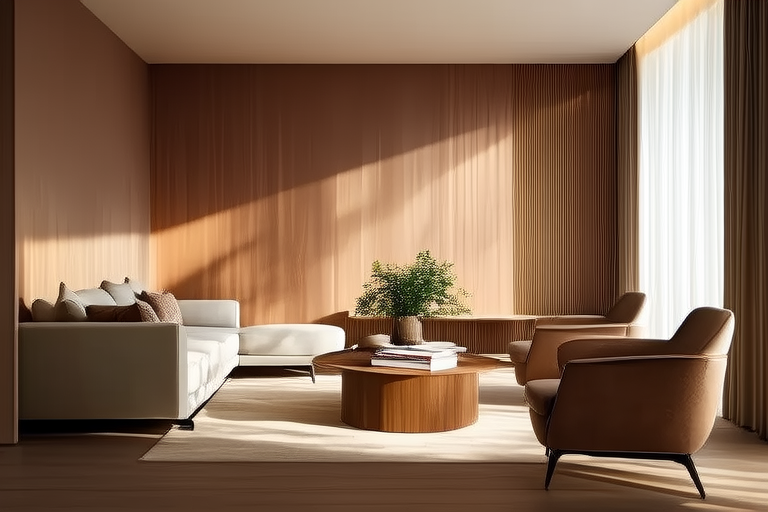Simplifying Your Life with Minimalist Living
Introduction
In today’s fast-paced world, it’s easy to get overwhelmed by the sheer amount of stuff we accumulate. From clothes to gadgets and everything in between, our homes can quickly become cluttered and stressful environments. This is where minimalist living comes in. By adopting a minimalist lifestyle, you can declutter your space, reduce stress, and focus on what truly matters. In this article, we’ll explore the benefits of minimalism, practical steps to simplify your life, and real-life examples that will inspire you to start your own minimalist journey.
What Is Minimalist Living?
Minimalist living is not just about having fewer possessions; it’s about making intentional choices about what you bring into your life. It’s about focusing on experiences over material goods, simplifying your routines, and creating a more peaceful environment. The key principles of minimalism include:
- Decluttering: Regularly assessing and removing items that no longer serve a purpose or bring joy.
- Mindful Consumption: Being conscious of purchases and their long-term impact on your life.
- Simplification: Streamlining daily tasks and reducing complexity in your routine.
Minimalism isn’t about deprivation but rather about finding balance and contentment. By embracing minimalism, you can create a more organized, serene, and fulfilling life.
Benefits of Minimalist Living
Reduced Stress and Anxiety
One of the most significant advantages of minimalist living is the reduction in stress and anxiety. Cluttered spaces can lead to mental overload, making it harder to relax and concentrate. A minimalist environment, on the other hand, promotes calmness and clarity. Studies have shown that people who live in clutter-free homes experience lower levels of cortisol, the stress hormone.
Financial Freedom
Minimalism often goes hand-in-hand with financial responsibility. By being mindful of your purchases and avoiding unnecessary expenses, you can save money and invest in experiences rather than material things. This shift in mindset can lead to greater financial stability and freedom.
Enhanced Focus and Productivity
A clean and organized living space can significantly improve your focus and productivity. Without distractions from clutter, you can concentrate better on your work and personal goals. This increased efficiency can lead to a more rewarding and successful life.
Practical Steps to Embrace Minimalism
Start Small
The idea of decluttering your entire home can be daunting. Start by tackling one small area at a time, such as a drawer, a shelf, or a closet. Once you’ve made progress in one area, move on to the next. This gradual approach will help you build momentum and avoid feeling overwhelmed.
Create a Sorting System
When decluttering, it’s essential to have a clear system for sorting items. Consider using the KonMari method, which involves asking yourself whether each item brings you joy. If it doesn’t, consider donating, selling, or recycling it. Another useful strategy is to categorize items into four groups: keep, donate, sell, and throw away.
Simplify Your Daily Routines
In addition to physical decluttering, simplifying your daily routines can also contribute to a minimalist lifestyle. Streamline your morning and evening routines by eliminating unnecessary steps. For example, you could reduce the number of beauty products you use or cut down on meal preparation time by cooking in batches.
Real-Life Examples of Minimalist Living
Sarah’s Journey
Sarah, a busy professional, found herself constantly stressed and overwhelmed by her cluttered home. After reading about minimalism, she decided to give it a try. She started by decluttering one room at a time, focusing on items that brought her joy or served a purpose. Over time, she noticed a significant improvement in her mental well-being and productivity. She also saved money by avoiding impulse purchases and investing in experiences instead.
John’s Minimalist Home Office
John, a freelance writer, realized that his chaotic home office was affecting his productivity. He decided to adopt a minimalist approach by downsizing his desk to only the essentials: a laptop, a few notebooks, and a pen. He removed all unnecessary gadgets and decorative items, leaving him with a clean and focused workspace. As a result, he reported higher levels of concentration and creativity.
Conclusion
Minimalist living offers numerous benefits, from reduced stress and anxiety to enhanced focus and financial freedom. By decluttering your space, simplifying your routines, and making intentional choices about what you bring into your life, you can create a more peaceful and fulfilling existence. Whether you’re just starting out or looking to deepen your commitment to minimalism, remember that the journey is as important as the destination. Take it one step at a time, and embrace the simplicity that comes with it.
Actionable Tip: Begin by decluttering one small area of your home each week. Reflect on whether each item brings you joy or serves a purpose. Over time, you’ll notice a significant improvement in your mental and physical well-being.
